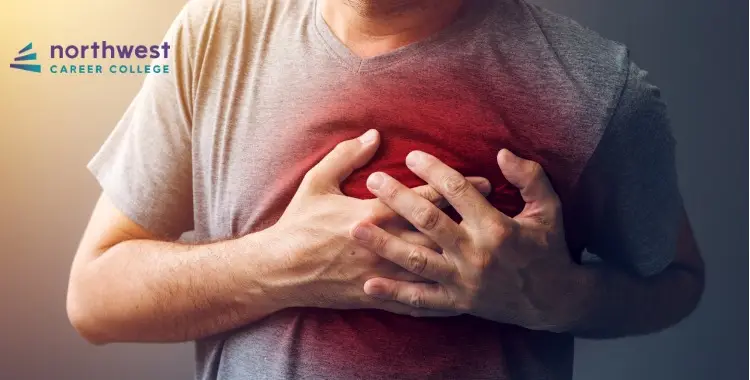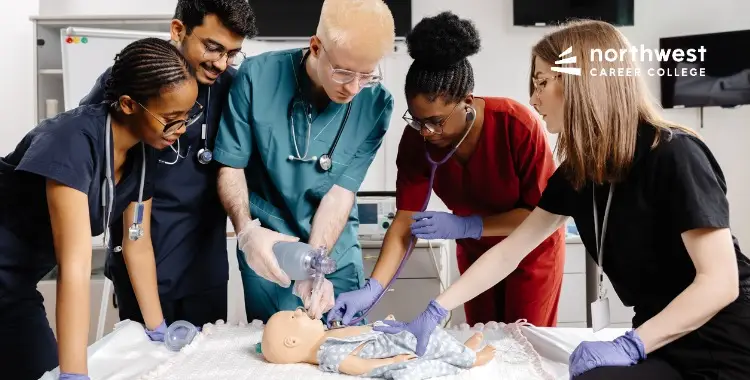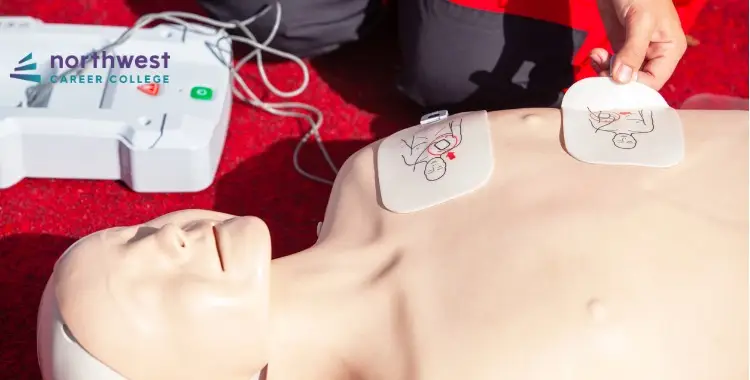How Massage Therapists Can Learn to Recognize A Heart Attack?
- CPR
- April 8, 2025
- 3.7k views
- 4 min read

Coronary heart disease accounted for approximately 13% of deaths in the US in 2016, causing 363,452 deaths. According to data from 2005 to 2014, the estimated annual incidence of a heart attack in the US was 605,000 new attacks and 200,000 recurrent attacks.
That means that in the United States in 2019, coronary events are expected to occur in about 1,055,000 individuals, including 720,000 new and 335,000 recurrent coronary events.
Approximately every 40 seconds, an American will have a myocardial infarction and 370,000 of those who do suffer a heart attack will die.
With numbers that large, it is perhaps unsurprising that many Massage therapists have had to deal with a patient who is having a heart attack. In this article, we will be looking at what the symptoms of a heart attack are and how to deal with a patient that is having one.
Read More: Differing Symptoms of Heart Attacks in Men and Women
Table of Contents
What Causes a Heart Attack?
A heart attack occurs when the flow of blood to the heart is stopped by a blockage. If the blockage is not removed, the part of the heart that receives blood from the blacked artery will start to die.
Heart attacks are often caused by a condition called atherosclerosis, in which plaque builds up in the arteries due to high levels of cholesterol in the blood. They can also be brought on by severe dehydration, drug abuse, extreme pain or emotional stress, and exposure to extreme cold or heat.
Symptoms of a Heart Attack
Not all people who have heart attacks have the same symptoms or have the same severity of symptoms. Some people have mild pain; others have more severe pain. Some people have no symptoms; for others, the first sign may be sudden cardiac arrest.
- Pressure, tightness, pain, or a squeezing or aching sensation in the chest or arms that may spread to your neck, jaw or back.
- Nausea, indigestion, heartburn or abdominal pain.
- Shortness of breath.
- Cold sweat.
- Fatigue.
- Lightheadedness or sudden dizziness.
How to Treat a Patient Who Is Having a Heart Attack
If the victim shows signs of having a heart attack, your first step is always to call 911.
If the victim has yet to lose consciousness, you can try and forestall a potential cardiac arrest by giving the victim one 325 milligram aspirin to chew and swallow. Aspirin acts as a blood thinner that can help break up the blockage that is causing the heart attack.
If the victim has a history of cardiac issues they may also have been prescribed cardiac medication, such as nitroglycerin, which can also be used to prevent cardiac arrest. Heart attack victims do not need immediate CPR and you should not start to perform CPR if the victim is still breathing and still has a pulse, even if they have lost consciousness.
If at any point the victim stops breathing or you can’t find any evidence of a plus, being chest compressions immediately and continue them until the emergency services arrive.
Put one hand over the other, with fingers entwined, place them in the center of the chest between the victim’s nipples.
Press down hard and fast. Each compression should depress the chest by about two inches and should be repeated about 100 times a minute.
The chest should be allowed to rise up momentarily between compressions to allow the heart and lungs to refill.
If you haven’t been trained in CPR, doctors recommend performing only chest compressions. If you have been trained in CPR, you can go on to opening the airway and rescue breathing.
Learn To Save Lives
Here at Northwest Career College, we are committed to providing affordable, quality CPR Classes to the Las Vegas community. We pride ourselves on being an American Heart Association (AHA) testing center and we offer Las Vegas CPR classes designed to fit your personal needs and professional schedule. As part of our “student-focussed” approach to education we also off our CPR classes free of charge to all of our students. Call us today on (702) 403-1592 to book your CPR class and become qualified to save a life in just four hours!



